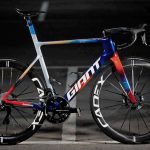In spite of unseasonably cool temperatures, consumers were out buying Easter merchandise last month. According to the National Retail Federation (NRF), retail industry sales for March (which exclude automobiles, gas stations, and restaurants) rose a healthy 6.8% over last year but dropped 0.1% seasonally adjusted from February, the first seasonally adjusted dip since last June. First quarter retail industry sales rose 5.4% over 2004.
“The first three months of last year were very strong, so we had some initial concerns about first quarter retail sales this year,” said NRF Chief Economist Rosalind Wells. “But in spite of cool weather, tough comparisons, and rising gas prices, 2005 is off to a great start.”
March retail sales released today by the U.S. Commerce Department show that total retail sales (which include non-general merchandise categories such as autos, gasoline stations and restaurants) rose 0.3% seasonally adjusted from February and increased 7.3% unadjusted year-over-year. Sales at gasoline stations, a category that NRF does not include in its retail sales calculation, rose 17.8% over a year ago.
Spending on Easter items caused food sales to rise 7.9% over a year ago, though they remained flat from February. Easter sales also spurred the purchase of apparel, as clothing and clothing accessories stores rose 7.2% unadjusted over last March though dropping 1.9% adjusted from February. Additionally, general merchandise sales increased 7.8% over last year but dropped 0.7% from February.
“This year's early Easter was a boon for March sales, but may pose a problem in April, as comparisons will be difficult,” said NRF President and CEO Tracy Mullin. “Retailers will need to be working overtime this month to keep consumers coming to the stores for spring merchandise.” (This year, Easter fell on March 27. Last year, Easter fell on April 11.)
As announced at NRF's Annual Convention & EXPO, NRF has broadened its definition of “retail sales” to include food and beverage stores, building materials and garden equipment stores, health and personal care stores, and miscellaneous retailers including florists and gift shops. NRF had previously only monitored sales at general merchandise stores, clothing and clothing accessories stores, furniture and home furnishings stores, electronics and appliances stores, and sporting goods, hobby, book and music stores.















